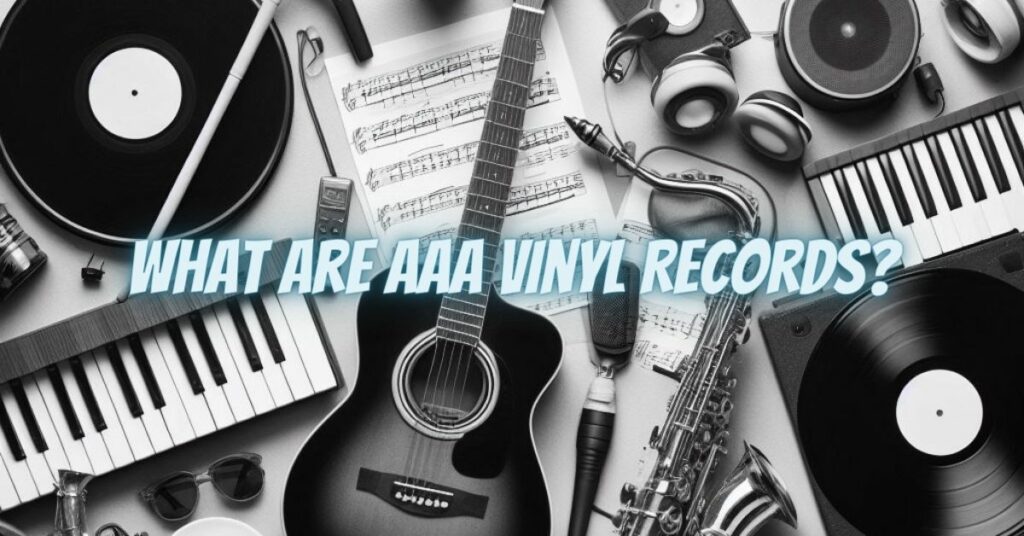Vinyl records have long held a special place in the hearts of audiophiles for their warm and organic sound. Within the world of vinyl, you may come across the term “AAA vinyl records.” But what does AAA stand for, and why are these records held in such high regard by audiophiles? In this article, we will delve into the meaning of AAA vinyl records and why they are coveted by enthusiasts.
Defining AAA Vinyl Records
AAA is an acronym that stands for “Analog, Analog, Analog.” In the context of vinyl records, AAA denotes a specific approach to the recording, mastering, and manufacturing process that prioritizes an all-analog chain, from the original recording to the final product.
- Analog Recording: The first “Analog” in AAA refers to the recording process. It means that the original source material, such as a music performance, is captured using analog technology, typically analog tape recorders. This method captures sound as continuous waveforms, preserving the natural and warm characteristics of the music.
- Analog Mastering: The second “Analog” in AAA signifies that the mastering process is also conducted using analog equipment. Analog mastering involves using analog gear, like tube amplifiers and vintage equalizers, to create the master lacquer used in the vinyl pressing. This analog approach is known for its ability to maintain the integrity of the music’s dynamics and tonal qualities.
- Analog Vinyl Pressing: The final “Analog” refers to the manufacturing of the vinyl records themselves. AAA records are pressed from a master lacquer made using analog equipment. This results in the creation of vinyl records that are as close to the original analog recording as possible.
Why AAA Vinyl Records Are Highly Regarded
The preference for AAA vinyl records among audiophiles is rooted in the belief that an all-analog chain, from the recording studio to the turntable, can deliver a superior listening experience. Here’s why AAA records are held in high regard:
- Audio Fidelity: The use of analog recording and mastering equipment is believed to preserve the true essence of the music, resulting in superior audio fidelity. Audiophiles appreciate the warm and natural sound that analog technology imparts.
- Dynamic Range: AAA records tend to have a wider dynamic range, meaning they can reproduce soft and loud passages more faithfully. This adds to the emotional impact of the music.
- Rich Tonality: Analog recording and mastering often contribute to a rich and full tonal quality in the music. The music sounds more textured and organic, making it a compelling choice for those who value sonic depth.
- Collector’s Appeal: Many AAA releases are pressed in limited quantities and packaged with meticulous attention to detail. This collector-friendly approach adds to their desirability among vinyl enthusiasts.
Challenges and Considerations
While AAA vinyl records are highly regarded, there are challenges and considerations to keep in mind:
- Availability: AAA records can be relatively rare and expensive due to the specialized nature of their production.
- Equipment: To fully appreciate the benefits of AAA records, audiophiles often invest in high-quality analog audio equipment, which can be costly.
- Mastering Quality: The quality of mastering can vary, even in AAA releases. Not all AAA records are created equal, and the skill of the mastering engineer plays a crucial role in the final sound.
AAA vinyl records represent a commitment to preserving the analog nature of music from start to finish. Their appeal lies in the belief that this analog approach offers a superior listening experience with exceptional audio fidelity, dynamic range, and tonal richness. While AAA records can be a rewarding addition to a vinyl collection, it’s important to consider the associated costs and equipment requirements. For those who value the essence of analog music, AAA vinyl records are a testament to the enduring art of vinyl and the pursuit of sonic perfection.

